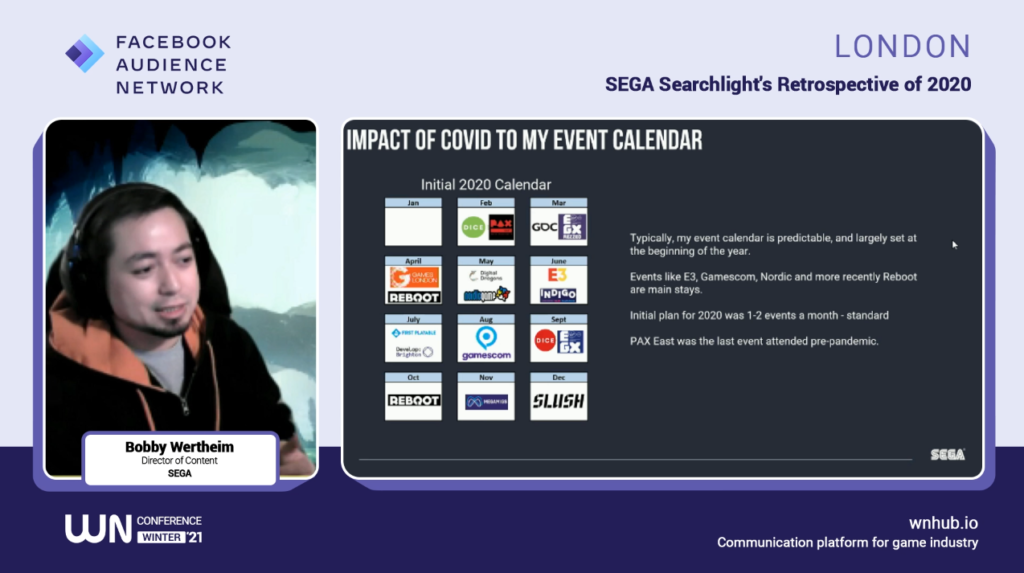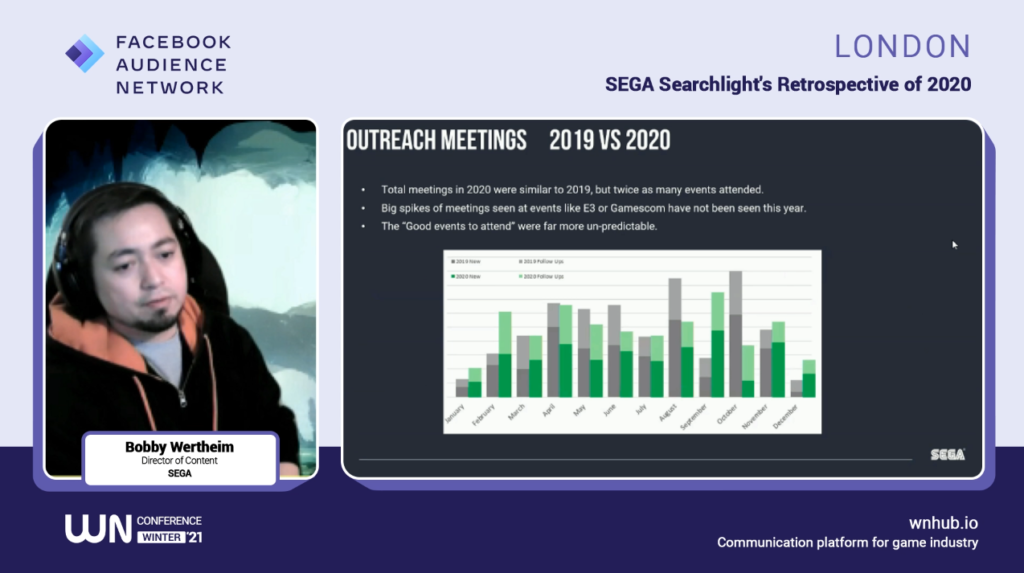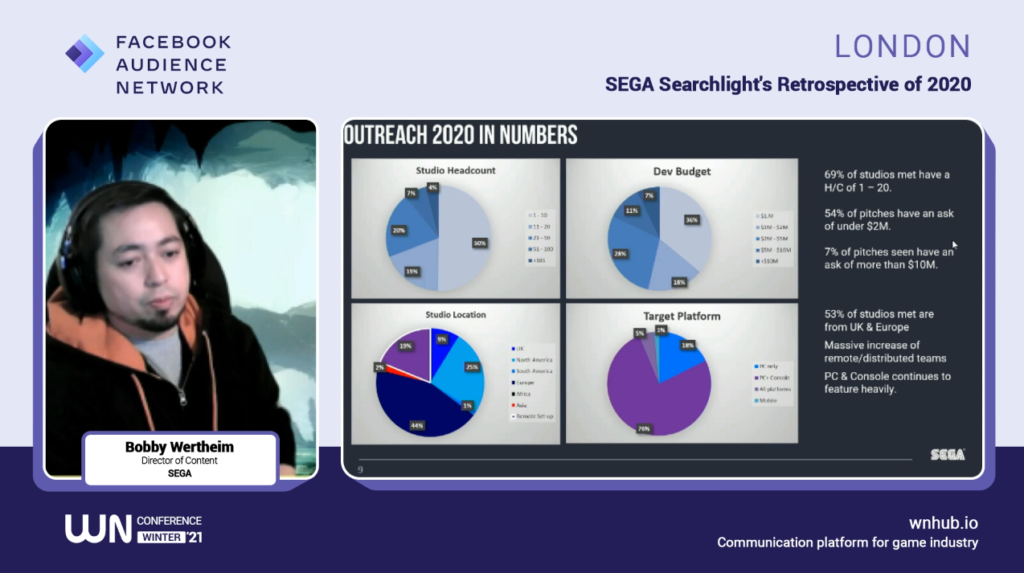2020 has greatly influenced not only how games are developed, but also how publishers find them. Previously, most of the pitches took place at major events with personal communication. The pandemic has made its own adjustments. Bobby Wertheim, director of content at SEGA Searchlight, told about the main ones at WN Winter’21.
Bobby Wertheim
Bobby is looking for new games.
His job is to meet and talk with developers, listen to pitches and decide at a preliminary stage whether the game is interesting to the company or not. His company is SEGA Searchlight. This is a division of SEGA, which produces and publishes games from external teams. Her focus is new IP.
Before the world lockdown, as Bobby says, he had a predictable and planned calendar of events for the whole year. Traditionally, the first half of the year was the most active. On average, he attended 1-2 events a month. This was enough to “light up” and, most importantly, get acquainted with various teams, build relationships with them.
In the new — online — conditions, establishing connections has become a problem. It is extremely problematic to do this without live networking. Therefore, in order to obtain a similar level of coverage, SEGA Searchlight had to be activated. Since last May, Bobby has been attending — already virtually — three events a month. As a result, in 2020 he attended 34 events (against 19 a year earlier).
This led to the fact that there were no drawdowns in the number of meetings with developers at SEGA Searchlight. It remained at about the same level (Bobby noted that we are talking about the order of 2000 new pitches per year), although the number of events attended has almost doubled.
Unexpected for him was also the unpredictability of the effectiveness of the events. Previously, he had a plus or minus idea of what to expect from E3 or gamescom, and what to expect from a smaller event. There is no such representation with online events. You never know if the event will bring interesting meetings or not. On the other hand, the peak and stalemate months in terms of the number of negotiations have gone (previously, peaks fell on central events, and falls — on the periods between them and the winter season, now the situation has leveled off as a whole).
At the end of the speech, Bobby shared interesting statistics on the results of numerous pitches over the past year. However, he immediately made a reservation that the figures presented below are not a reflection of the entire supply market. They characterize only the part that interests him and SEGA Searchlight (the company is looking mainly for premium games for PC and consoles). So:
- 69% of studios can be attributed to small ones (they employ from 1 to 20 people);
- 54% of pitches request less than $2 million;
- in 7% of pitches, we are talking about $10 million or more;
- as a rule, developers come with a strategy/taikun pitch (although they also very often offer role-playing games and action/adventure);
- now there is a decline in VR offers.
The most interesting thing: for the first time, there are more pitches with Unreal Engine games than with Unity games. According to Bobby, there used to be the following situation: if the project was small and a modest budget was requested, then, as a rule, it was Unity, and those who wanted to attract serious money did it on Unreal Engine. Now there is no such division anymore. A project based on the engine from Epic Games can also bring a small team planning an inexpensive camera product.




